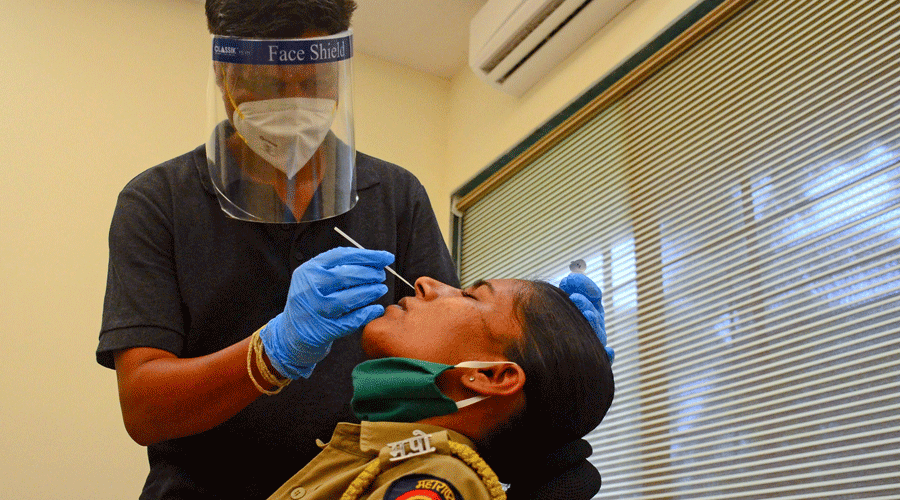India’s Covid-19 outbreak remains a long way from the threshold at which the natural spread of the virus itself suppresses the epidemic, health researchers have cautioned amid signals that some cities might be moving towards that “herd immunity” threshold.
Government surveys indicating that 23 per cent of Delhi’s and 17 per cent of Ahmedabad’s people carry antibodies to the coronavirus have prompted public health experts to suggest some cities might be heading towards the threshold.
But calculations suggest that at least 60 per cent of a population needs to be infected to reach herd immunity — the situation in which so many people are infected that they pose barriers to any further spread of the virus.
“No city or country in the world has reached that point. Indian cities too are a long way from herd immunity protection,” said K. Srinath Reddy, president of the Public Health Foundation of India, New Delhi, and a member of India’s national task force on Covid-19. “It’s going to be a long journey. We will probably get there eventually, but trying to hurry through by unhindered exposure to the virus will have huge human costs.”
Reddy also stressed that the concept of herd-immunity protection is rendered meaningless by seamless travel and contact between populations with different infection-prevalence levels.
Even in cities beyond the threshold point, he said, an uninfected person is protected only when shielded by the majority who have recovered and are immune.
“If such a person travels to another part of India where infection levels are below the threshold, the benefit of herd protection is no longer available,” Reddy said. “The large infection-prevalence numbers in some cities should not lead to any complacency. All the required precautions such as physical distancing, face masks, and hand and respiratory hygiene should be followed with rigour.”
Experts have also underlined that herd-immunity protection does not mean the end of the disease.
“We cannot expect the virus to extinguish itself — it won’t happen,” said T. Jacob John, senior clinical virologist and formerly a faculty member at the Christian Medical College, Vellore. “If we reach the 60 per cent threshold naturally, the epidemic will cease and the infection will become endemic. We should then see a small but steady trickle of patients every month.”
And that, many experts say, underscores the need for an effective vaccine which would be the other way to achieve herd immunity.
“We could view this as a race towards herd-immunity protection — either through natural spread of the infection or through vaccines,” said Dipyaman Ganguly, a clinical-immunologist at the Indian Institute of Chemical Biology, Calcutta. “As of now, it looks like natural spread is winning.”
India on Friday recorded 49,310 new Covid-19 cases, another highest-yet single day increase, raising the total of lab-confirmed patients to 1,287,945, of whom 440,135 are under medical supervision, 817,209 have recovered, and 30,601 have died.
Although the findings of the antibody surveys have stirred speculation about herd immunity among some health experts, many researchers have stressed the need for immunological studies to determine what exactly those antibodies imply.
The current expectation — based on immunological studies in other countries and the lack of validated “re-infections” among people who have recovered from the coronavirus — is that those infected once are protected in the future. “There are two ways through which immunological protection might persist,” said Ganguly. “Through antibodies generated by the B-cells or through another arm of the immune system called memory T-cells.”
Scientists at the Duke-National University of Singapore have published research showing that the family of coronaviruses to which SARS-CoV-2 belongs induces long-lasting memory T-cell immunity, a finding many scientists view as encouraging.
“It’s critical to see whether infections or vaccines leave behind memory and how quickly that memory is recalled on the next exposure,” said Shahid Jameel, a senior virologist and chief of the Wellcome Trust-DBT India Alliance, an India-UK research partnership.











